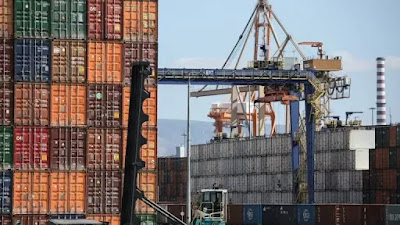Filenews 31 May 2025
The fragmented European energy networks, together with the individual fees and tariffs imposed from state to state in the transmission and supply of electricity and gas, increase energy costs within the EU by up to 110%, regardless of the import or production price of each energy product.
Just yesterday, the Minister of National Economy and Finance, Mr. Kyriakos Pierrakakis, after a meeting he had with the Governor of the Bank of Greece, Mr. Yannis Stournaras, stated that "we deeply believe that the barriers between the European economies must be removed. As Mario Draghi has mentioned, the barriers that exist in the services sector are equivalent to corresponding tariffs of 110%. It is, therefore, very important that we, each of us, contribute from their role in this discussion."
In the now famous Draghi report, it is stressed that the rules for the pricing of energy transmission costs through the European grids should be harmonized immediately. Today, all kinds of duties and fees for transit through the national and multinational networks of the EU are imposed according to the number of political or systemic "borders", which each member state decides to have with its neighbours. As a result, the burden from the producing state or the one that receives natural gas first, for example, to the state at the other end of the network, increases cumulatively, since each intermediate country transfers the additional costs it bears to its neighbours, which are supplied by the same network.
A typical example of arbitrary pricing is the increase in the cost of natural gas during the energy crisis in 2022. Due to the sanctions imposed by the EU on Russia for its invasion of Ukraine, the flow of natural gas from the pipelines of Northern and Eastern Europe has been interrupted. Fatally, part of the needs began to be covered by liquefied natural gas (LNG). However, inadequate infrastructure and limited transmission and cross-border connection networks have resulted in liquefied natural gas prices in different EU countries varying by up to €100 per thermal megawatt hour. Previously, extensive pipeline networks for the transmission of natural gas in gaseous form led to a price difference of a maximum of 1 euro per thermal megawatt hour from country to country.
Also, the additional costs paid in addition to regular network tariffs with the Agency for the Cooperation of Energy Regulators resulted in the increased flow revenues of EU Transmission System Operators (TSOs) increasing from €55 million in 2021, to €3.4 billion in 2022.
Industrial Products
The Draghi exhibition also saw increased production costs in industrial products, with raw materials from China. The reason lies in the higher tariffs imposed by the EU, compared to the US/ Specifically, for the EU, China's import duties and non-tariff measures add up to 12% for iron, steel and other metals. Correspondingly, U.S. tariffs to China were equivalent in 2024, at 4% for iron and steel and 7% for other metals.
Finally, the report recalled that the EU increased tariffs on EV imports from China in 2024. In July 2024, the European Commission imposed temporary countervailing duties ranging from 17.4% to 37.6%, on imports of electric vehicles from China, in addition to the existing 10% total import duty for cars. This is on the grounds that China benefited from production through unfair subsidies at source for the electric vehicles it shipped to Europe. Bilateral consultations are continuing with a view to reaching a solution that addresses the concerns raised by the EU.
